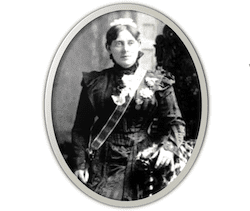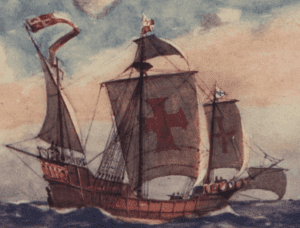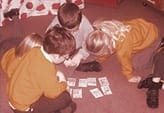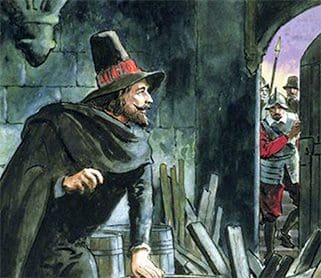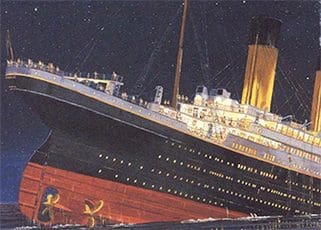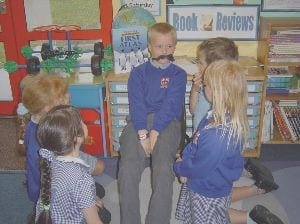
There is nothing particularly radical about using a thinking skills approach to history at Key Stage 1, but there are certainly two main pitfalls that snare the unwary. The first lies in the area of metacognition, that part of the lesson where pupils think about HOW they have learned and not just WHAT. The second relates to careless choice of the activity; it might work well in another context, and might even be fun, but it is not an effective way of helping pupils to learn particular ideas. Thinking skills lie at the heart of good history teaching at Key Stage 1. In some form or other they should feature in most lessons. Below are the 5 main strands :
Strand 1
Information processing This will involve the collection of relevant information from a picture, a video, or text , but will need to go further. Children need to develop the skills of sorting, classifying, and sequencing. That is why you will find so much of the site’s material in the form of cards or post-it notes. Their use encourages flexible thinking and the creation of patterns. They suggest that pupils can make their own meaning rather than simply taking the answers from one book or TV programme.
Strand 2
Reasoning The ability to explain events and human actions is key to the work of historians. For this reason we need to provide plenty of opportunities for children to give reasons for events, backed up by evidence and to justify their choices. Asking them to select what they think is the most important reason in their eyes, really encourages this way of thinking.
Strand 3
Thinking creatively As this is a really important issue that is receiving much more attention nowadays, I have devoted a separate section to it which you will find under creativity.
Strand 4
Enquiry It is tempting, when working with infants, to see history as an information giving subject in which they learn new and fascinating knowledge through a variety of stimulating resources and approaches. That takes us only so far. Children need to be able to ask as well as answer questions. That is why we place emphasis on techniques, such as hot seating. Children often find it difficult to ask their own questions, but with you in role they stand a far better chance of developing this ability. Putting children in groups with an open-ended research task will only help pupils’ enquiry skills if they first think about what they want to know, how they will acquire the information and then how they will communicate their understanding.
Strand 5
Evaluation If pupils really understand something well rather than just knowing a lot of facts (which may well soon be forgotten), they should be able to apply their knowledge to different situations. Take for example the idea of using a video at the end of the topic to evaluate how well it described or explained an important aspect. Here children use the TV programme to fine tune their understanding, not just as a source of information
The ultimate test of your ability to develop these skills rests on having strong activities to develop them not once, but time and again. For this reason you need to ring the changes and keep the activities fresh and motivating. If you look at the accompanying grid you will see that there are many activities that can be used across the key stage. For details of each strategy, look at 100 great teaching ideas or the 50 imaginative learning activities. You will see that many of these activities or strategies have been given a memorable short-hand term so that we can easily discuss them and build up a useful professional language. What might appear strange now will soon become second-nature.
You will find 4 different types of help:
Help 1
A summary of the skills in a nutshell, a simple A4 diagram
Help 2
A summary of where you might use thinking skills across the key stage with examples of tried and tested contexts
Help 3
If you go to the 50 imaginative learning activities section of the site you will find greater elaboration of the shorthand terms used to describe activities such as human graph, reconstruction relay and post-it challenge
Help 4
Most outstanding lessons on the site make explicit reference to thinking skills. Scott of the Antarctic starts with a slow reveal, for instance, and one of the lessons on the Moon landing and the Great Fire use de Bono’s Thinking Hats technique
Example of use of thinking skills in history at KS1
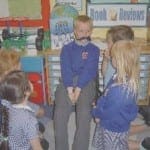 Wright Brothers – KQ4 – one teacher’s alternative approach – Wright brothers: prove to me that it really happened - This lesson was taught by Sarah Duck, Leading Teacher for History, Hampshire LA. She kindly describes for us how the lesson went. "Work had already begun on the Wright Brothers' topic and the children were familiar with the sequence of events leading up to, including and following the first successful flight. I wanted to explore how the event was recorded… Read More
Wright Brothers – KQ4 – one teacher’s alternative approach – Wright brothers: prove to me that it really happened - This lesson was taught by Sarah Duck, Leading Teacher for History, Hampshire LA. She kindly describes for us how the lesson went. "Work had already begun on the Wright Brothers' topic and the children were familiar with the sequence of events leading up to, including and following the first successful flight. I wanted to explore how the event was recorded… Read More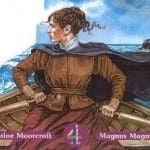 Grace Darling – KQ1 – Setting up the enquiry – What did Grace do that made her famous …and why is she remembered today? - This is the first lesson on an enquiry into Grace Darling: what she did, and why she was famous. The kernel of the lesson is a slow reveal activity which works really well on an Interactive White Board. The key image comes from the front cover of Channel 4's excellent book on Grace Darling in the Famous People series. Pupils are shown… Read More
Grace Darling – KQ1 – Setting up the enquiry – What did Grace do that made her famous …and why is she remembered today? - This is the first lesson on an enquiry into Grace Darling: what she did, and why she was famous. The kernel of the lesson is a slow reveal activity which works really well on an Interactive White Board. The key image comes from the front cover of Channel 4's excellent book on Grace Darling in the Famous People series. Pupils are shown… Read More Thinking skills in history at Key Stage 1 - There is nothing particularly radical about using a thinking skills approach to history at Key Stage 1, but there are certainly two main pitfalls that snare the unwary. The first lies in the area of metacognition, that part of the lesson where pupils think about HOW they have learned and not just WHAT. The second relates to careless choice of… Read More
Thinking skills in history at Key Stage 1 - There is nothing particularly radical about using a thinking skills approach to history at Key Stage 1, but there are certainly two main pitfalls that snare the unwary. The first lies in the area of metacognition, that part of the lesson where pupils think about HOW they have learned and not just WHAT. The second relates to careless choice of… Read More Using De Bono’s Thinking Hats to develop thinking skills at Key Stage 1 via the topic the Great Fire of London. Smart Task - Two infant teachers from southern Hampshire, Julie Syms from Crofton Hammond Infants and Nicola Beazley from Sarisbury Green Infants, have created a composite description of their experience of using de Bono’s Thinking Hats. The article in the resources section at the side focuses mainly on use of the Red, Black and Green hats. They had both used the hats before… Read More
Using De Bono’s Thinking Hats to develop thinking skills at Key Stage 1 via the topic the Great Fire of London. Smart Task - Two infant teachers from southern Hampshire, Julie Syms from Crofton Hammond Infants and Nicola Beazley from Sarisbury Green Infants, have created a composite description of their experience of using de Bono’s Thinking Hats. The article in the resources section at the side focuses mainly on use of the Red, Black and Green hats. They had both used the hats before… Read More

